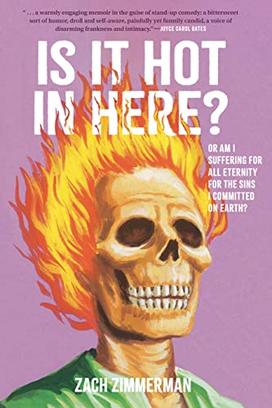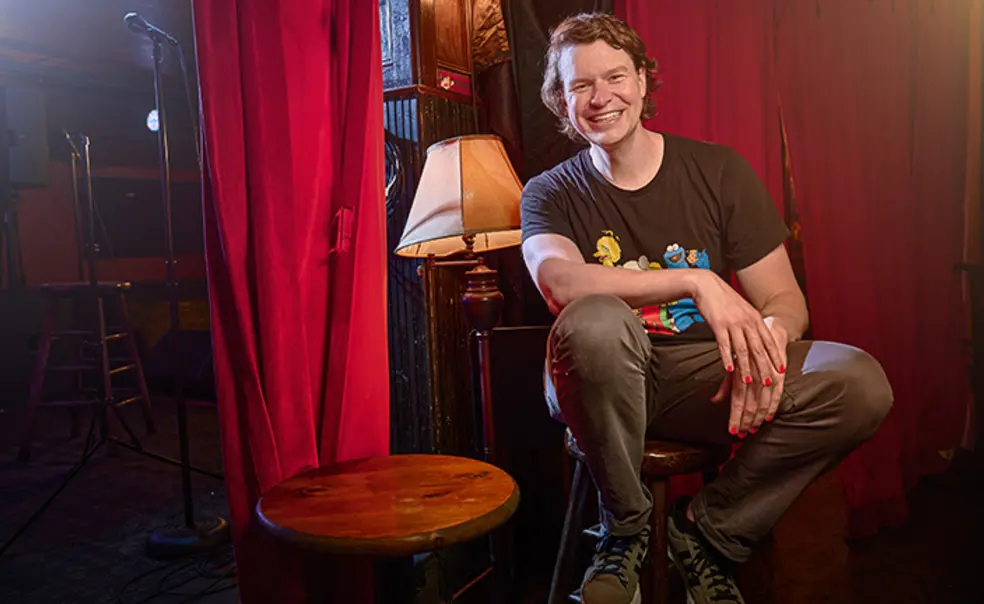Comedian Zach Zimmerman ’10 Is Releasing a Book of ‘Chipper Doom’
Zimmerman continues to provoke with levity and darkness
Zach Zimmerman ’10 has been pushing boundaries in comedy since his fledgling days in the Princeton Triangle Club. Once he pitched a skit idea involving a funeral. The workshop facilitator shut it down for being too heavy a concept to evoke onstage. “I realized that the darker the topic, the bigger the payoff of the joke has to be,” Zimmerman says.

Being a member of the Triangle Club and Quipfire! at Princeton shaped Zimmerman’s comedic path. “Those groups were so important to me, making friends and dipping my toes into what a comedy life could look like,” Zimmerman says.
He graduated with a degree in religion and was part of the theater program. Zimmerman riffs on this in his stand-up routines, cheekily calling it a “double major in lies — with a minor in asking for money.” He worked at an LGBTQ+ community center in Chicago before entering the field of advertising in New York.
Eight years later, after becoming disenchanted with climbing the corporate ladder, Zimmerman decided to pursue his passion for comedy full time. His comedy career has launched him onto the stage of James Corden’s The Late Late Show and onto TimeOut New York’s list of “Comics to Watch.” Zimmerman has written humor pieces and essays for The New Yorker and The Washington Post, to name a couple.
Zimmerman says he was inspired to write the book during the pandemic. He had written a story in The New Yorker about not wanting his mom to return to work at Red Lobster, and began envisioning an essay collection. The pieces range from amusing tales of dates gone wrong, to a satirical list of questions for God, to a somber essay on the death of a friend.
Often he veers back to his conservative Christian upbringing. When he first started testing out this content at stand-up shows, he noticed the audience found it particularly funny. “That’s when I realized I can make fun of the way I grew up and the fact that I thought I was going to hell for so long,” Zimmerman says.
Sandwiched between some more lighthearted pieces, Zimmerman’s essay about losing a friend in a mass shooting is cutting, offering a change of pace.
“I’ve always been drawn to luring people in with humor and then devastating them,” Zimmerman says, only partially joking. As he puts it, there is no light without darkness. One of Zimmerman’s friends described the book as “chipper doom.”
Zimmerman hopes readers glean both levity and compassion from his book. He says he hopes it makes them laugh out loud on the train and pick up the phone to call their mom.










No responses yet